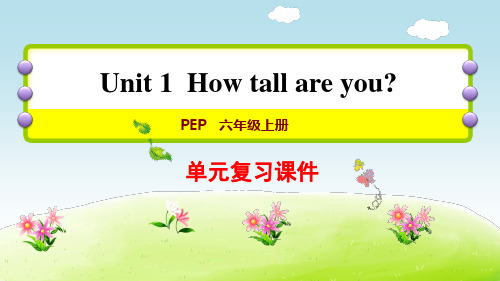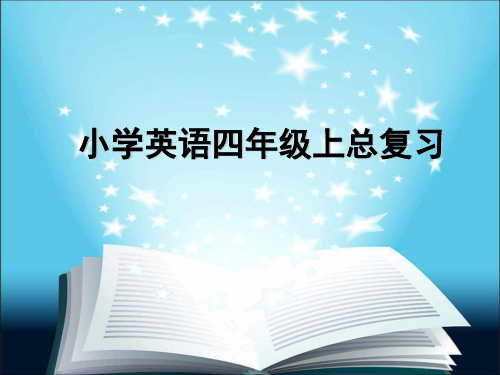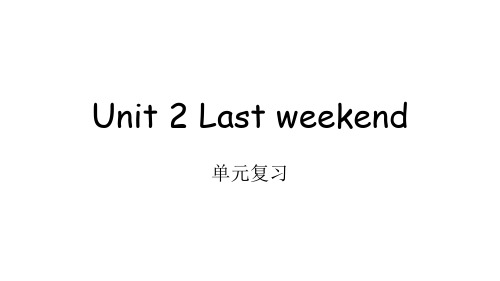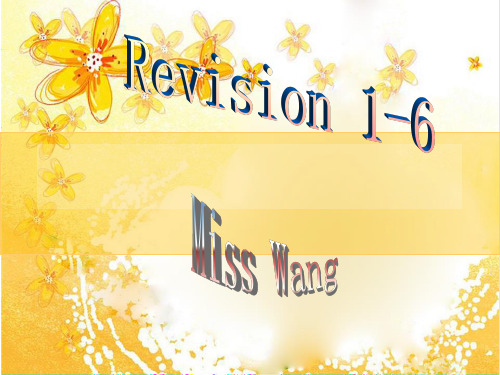PEP小学英语毕业总复习2句型课件
合集下载
人教PEP版英语六年级下册《期末总复习句型》课件

Are you eating lunch? No, we aren’t.
Are they eating the honey? Yes, they are.
Is he playing chess? Yes, he is.
23. Is she counting insects? No, she isn’t. 24. Who’s your English teacher? Mr Carter. 25. What’s he like? He’s tall and strong. 26. Is she quiet? No, she isn’t. She’s very active. 27. Is she strict? Yes, she is, but she’s very kind. 28. What day is it today? It’s Wednesday.
9. He likes collecting stamps, too. 10. Does she teach English? Yes, she does. No, she doesn’t. 11. What does your mother do? She is a TV reporter. 12. Where does she work? 13. How does she go to work? 14. Where does the rain come from? It comes from the clouds. 15. How do you do that? 16. What should you do then?
PEP小学英语主要句型
(人教PEP)六年级科学下册课件
1. How do you go to school, Sarah? Usually I go to school on foot. Sometimes I go to school by bike. 2. How can I get to Zhongshan Park? You can go by the No.15bus. 3. Where is the cinema, please? It’s next to the hospital. 4. Turn left at the cinema, then go straight. It’s on the left.
PEP人教版小学英语六年级下册期末复习课件(全册)

更小的 __s_m_a_l_l_er__ 12岁_1_2__y_e_a_r_s_o_ld__ 多重__h_o_w__h_e_a_v_y__
更强壮的__st_r_o_n_g_e_r 多高__h_o_w__t_a_l_l __ 多少号__w_h_a_t__si_z_e_
任务二:翻译重点句型 (两人一组,正确读出句子并翻译成汉语可得2分)
游戏规则: 按要求每完成一项任务即可获得相应的 分数,满10分即可获得一张王牌。
任务一:在习题本上写出下列单词或词组的过去 式并翻译成汉语,全部正确可得2分。
go_____w_e_n_t__去_______ ride__ro_d_e__骑__(__马__;__自__行__车__)_ hurt_h_u_r_t__(__使__)__受__伤__ eat_____a_te__吃_________ take ___t_o_o_k___拍__照_____ buy___b_o_u_g_h_t___买______ fall____fe_l_l__摔__倒_______ laugh____la_u_g_h_e_d___笑____
beautiful—more beautiful—most beautiful
任务四:看例子,说语法,学解题 (听老师讲例句,然后做下一页习题,全对可得2分)
You are__o_ld_e_r__ than me. 你比我年龄大。
解析: 这是用于比较两个人或事物的常见句型,句型 结构是:主语+be动词(am\is\are)+比较级+than+宾语。 年龄大用old,其比较级是older.
任务一:在习题本上写出下列单词的过去式并且
翻译成汉语,全部正确可得2分。
clean __c_le_a_n_e_d_打__扫___
人教(PEP)四年级上册英语总复习 (共16张PPT)

Chinese book 语文书 English book 英语书 math book 数学 书 schoolbag 书包 story-book 故事书 notebook 笔记本twenty-one 二 十一 thirty-one 三十一 forty 四十 forty-one 四十一 fifty五十 fifty 五十
P8 Let’s clean the classroom. 让我们一起打扫教室。
Let me clean the window. 让我来擦窗户。
语法点:let’s = let us 让我们 let me 让我
Look at the picture. 看那幅图画。Good job! 做得好!Good idea. 好
关于数字的单词:
Unit 2
one two three four five six seven eight nine ten eleven twelve thirteen fourteen fifteen sixteen
I have many booskesv.e我nte有en许ei多gh书tee。n nineteen
May I have a loo2k0?tw我e可nty以3看0 t看hir吗ty?40 forty 50 fifty 60 sixty Sure. Here you are.当然可以。给你。
P19 How many 2E1ntgwleisnhtyb-oonoek3s1ctahinrtyy-oounesee? 你可以看见
小学英语四年级上总复习
Unit 1 My Classroom Unit 2 My Schoolbag Unit 3 My Friends Unit 4 My Home Unit 5 What Would You Like? Unit 6 Meet My Family
(PEP)六年级英语下册 单元复习课件 Unit2

Unit 2 Last weekend
单元复习
1
2
3
4
5
单 句语对 练
词 型法话 习
Words
the day before yesterday
last week
this week
一
MON.
二
TUES.
三 13 14 15
last Monday
五 六 日 一 二三 四五 六 日
A: How was your weekend? B: It was ___. (good, fine, OK,
great) A: What did you do last weekend? B: I _________. A: Did you do anything else? B: Yes, I _________.
词
I didn't wash my clothes last weekend.
的
一 般
一般疑问句:Did+主语+动词原形+其他?
过
Did you wash your clothes last weekend?
去
时 特殊疑问句:特殊疑问词+did+主语+动词原形+其他?
What did you do last weekend?
saw a film slept
What did you do _____? I _______.
last weekend last night last Monday yesterday the day before yesterday
Did+主语+动词原形…?
—Yes, she did.
单元复习
1
2
3
4
5
单 句语对 练
词 型法话 习
Words
the day before yesterday
last week
this week
一
MON.
二
TUES.
三 13 14 15
last Monday
五 六 日 一 二三 四五 六 日
A: How was your weekend? B: It was ___. (good, fine, OK,
great) A: What did you do last weekend? B: I _________. A: Did you do anything else? B: Yes, I _________.
词
I didn't wash my clothes last weekend.
的
一 般
一般疑问句:Did+主语+动词原形+其他?
过
Did you wash your clothes last weekend?
去
时 特殊疑问句:特殊疑问词+did+主语+动词原形+其他?
What did you do last weekend?
saw a film slept
What did you do _____? I _______.
last weekend last night last Monday yesterday the day before yesterday
Did+主语+动词原形…?
—Yes, she did.
pep人教版小学英语毕业总复习易错题及考试技巧课件

asker
一:学生易错词汇
• 1. a, an的选择: 元音字母开头的单词用an,辅音字 母开头的单词用a. 2. am , is , are的选择: 单数用 is , 复数用are. I 用 am , you 用 are. 3. have , has 的选择: 表示某人有某物.单数用has , 复数用have. I ,you 用 have . 4. there is, there are 的选择:表示 某地有某物,某人.单数用there is , 复数用there are. 5. some, any 的选择:肯定句用some, 疑问句 和否定句用any. 6. 疑问词的选择:what (什么) who (谁) where (哪里) whose (谁的) why(为什 么)when(什么时候)which(哪一个)how old (多大) how many (多少)how much(多少钱)
二:形容词比较级详解
• 三,根据中文完成句子. (1) 我比我的弟弟大三岁. I'm than my brother. (2) 这棵树要比那棵树高. This tree than that one. (3) 你比他矮四厘米. You are than he. (4) 谁比你重 than you 三:动词过去式详解 动词的过 去式的构成规则有: A,规则动词 ① 一般直接在动词的后面加ed:如 worked , learned , cleaned , visited ② 以e结尾的动词直接加d:如 lived , danced , used ③ 以辅音字母加y结尾的动词要改y为i再加 ed(此类动词较少)如 study – studied carry – carried worry – worried (注意play,stay不是辅音字母加y,所以不属于此类) ④ 双写最后一个字 母(此类动词较少)如 stopped B,不规则动词(此类词并无规则,须熟记) 小学阶段要记住以下动词的原形和过去式:sing – sang , eat – ate , see – saw , have – had , do – did , go - went , take - took , buy bought , get - got , read - read ,fly - flew , am/is - was , are - were , say - said , leave - left , swim - swam , tell - told , draw - drew , come - came , lose - lost , find - found , drink - drank , hurt - hurt , feel - felt 四:动词现在分词详解 动词的ing形式的构成规则: ① 一般的直接在后 面加上ing , 如doing , going , working , singing , eating ② 以e 结尾的 动词,要先去e再加ing ,如having , writing ③ 双写最后一个字母的(此类 动词极少)有:running , swimming , sitting , getting
一:学生易错词汇
• 1. a, an的选择: 元音字母开头的单词用an,辅音字 母开头的单词用a. 2. am , is , are的选择: 单数用 is , 复数用are. I 用 am , you 用 are. 3. have , has 的选择: 表示某人有某物.单数用has , 复数用have. I ,you 用 have . 4. there is, there are 的选择:表示 某地有某物,某人.单数用there is , 复数用there are. 5. some, any 的选择:肯定句用some, 疑问句 和否定句用any. 6. 疑问词的选择:what (什么) who (谁) where (哪里) whose (谁的) why(为什 么)when(什么时候)which(哪一个)how old (多大) how many (多少)how much(多少钱)
二:形容词比较级详解
• 三,根据中文完成句子. (1) 我比我的弟弟大三岁. I'm than my brother. (2) 这棵树要比那棵树高. This tree than that one. (3) 你比他矮四厘米. You are than he. (4) 谁比你重 than you 三:动词过去式详解 动词的过 去式的构成规则有: A,规则动词 ① 一般直接在动词的后面加ed:如 worked , learned , cleaned , visited ② 以e结尾的动词直接加d:如 lived , danced , used ③ 以辅音字母加y结尾的动词要改y为i再加 ed(此类动词较少)如 study – studied carry – carried worry – worried (注意play,stay不是辅音字母加y,所以不属于此类) ④ 双写最后一个字 母(此类动词较少)如 stopped B,不规则动词(此类词并无规则,须熟记) 小学阶段要记住以下动词的原形和过去式:sing – sang , eat – ate , see – saw , have – had , do – did , go - went , take - took , buy bought , get - got , read - read ,fly - flew , am/is - was , are - were , say - said , leave - left , swim - swam , tell - told , draw - drew , come - came , lose - lost , find - found , drink - drank , hurt - hurt , feel - felt 四:动词现在分词详解 动词的ing形式的构成规则: ① 一般的直接在后 面加上ing , 如doing , going , working , singing , eating ② 以e 结尾的 动词,要先去e再加ing ,如having , writing ③ 双写最后一个字母的(此类 动词极少)有:running , swimming , sitting , getting
pep人教版小学英语总复习六上1、2单元复习课件

How does your brother go to school?
你弟弟怎样去上学?
询问交通方式的句型
How do you get to …?
你怎样到达……? 如果要问的是第三人称单数,则要用: How does he/she…get to …?
How do you get to Changchun?
你怎样到达长春?
traffic lights
red light
yellow light green light
Red light means stop.
Yellow light means wait .
Green light means go .
Remember the traffic rules. Stop at a red light. Wait at a yellow light. Go at a green light.
• • • • • • • •
How can I get to Zhongshan Park ? 我怎么到达中山公园? You can go by the No. 15 bus. 你可以坐15路公共汽车去。 Can I go on foot? 我可以走路去吗? Sure, if you like. It’s not far. 当然可以,如果你愿意。它不远。
Unit one
How do you go there?
bus
ship
car
boat
subway
train bike
plane
taxi
by bike
by bus by train by subway
by plane
by ship
PEP人教版小学英语六年级下册期末unit2复习课件

__I’_m__h__a_p_p_y__y_o_u__f_e_e_l_b_e_t_t_e_r_n__o_w_.____________
三、按要求改写句子。
1. I cleaned the room yesterday.(就画横线部分提问)
__W__h__a_t_d_i_d__y_o_u__d_o__y_e_s_t_e_rd__a_y_?________.
weekend (整个周末)
all day
(整天)
night (整晚)
一、把正确选项的序号填入题前的括号中。
( )1. – What _____you ____yesterday?
A. do;do B. did;do C. did;did
( ) 2.-Did you ________TV last weekend?
而感谢你lets动原表示让我们做某事wantto动原表示想要去做某事couldnt动原表示不能做某事didnt动原表示不
Unit2复习课件
英语人教PEP版 六年级下册
Catch the stars
一般过去时表示过去某个时间发生的动作或 存在的状态。
常和表示过去的时间词语连 如: last weekend, last Sunday等
变法:变换动词的形态。
What did you do last weekend?
washed my clothes 洗我的衣服
wash 过去式 washed
What did you do last weekend?
watched TV 看电视
watch 过去式 watched
What did you do last weekend?
cleaned my room
三、按要求改写句子。
1. I cleaned the room yesterday.(就画横线部分提问)
__W__h__a_t_d_i_d__y_o_u__d_o__y_e_s_t_e_rd__a_y_?________.
weekend (整个周末)
all day
(整天)
night (整晚)
一、把正确选项的序号填入题前的括号中。
( )1. – What _____you ____yesterday?
A. do;do B. did;do C. did;did
( ) 2.-Did you ________TV last weekend?
而感谢你lets动原表示让我们做某事wantto动原表示想要去做某事couldnt动原表示不能做某事didnt动原表示不
Unit2复习课件
英语人教PEP版 六年级下册
Catch the stars
一般过去时表示过去某个时间发生的动作或 存在的状态。
常和表示过去的时间词语连 如: last weekend, last Sunday等
变法:变换动词的形态。
What did you do last weekend?
washed my clothes 洗我的衣服
wash 过去式 washed
What did you do last weekend?
watched TV 看电视
watch 过去式 watched
What did you do last weekend?
cleaned my room
PEP小学英语三年级1-6单元总复习课件

• 一、把下面的句子翻译成中文意思。 1、Here you are .__________________ 2、Thank you .____________________ 3、Can I have some milk ?______________________ 4、Happy Birthday to you ! ____________________________ 5、How are you ? Fine, Thank you . _______________________ 6、How old are you ? __________________________________?
• 二、把下面数字从小到大排列,只填序号。 • ①three ②one ③four ④nine ⑤seven • ⑥two ⑦eight ⑧ten ⑨six ⑩five
第3单元
• Important sentences核心句型: • 1. How are you? I’m fine. / Fine. / Very well, thank you. / Thanks. • Vocabulary词汇: blue, green, yellow, red, purple, white, black, brown, , orange.
第5单元
• • • • • • • • • Important sentences核心句型: 1.I like hamburgers / hot dogs, etc. 2.Have some French fries / juice, etc. 3.OK! 4.Thank you. / No, thanks. 5.Can I have some chicken / coke, please? 6.Sure.Here you are. 7.Thank you.You're welcome. Vocabulary词汇: cake, hamburger, hot dog, chicken, French fries, bread, water, milk, juice, tea, Coke, coffee.
- 1、下载文档前请自行甄别文档内容的完整性,平台不提供额外的编辑、内容补充、找答案等附加服务。
- 2、"仅部分预览"的文档,不可在线预览部分如存在完整性等问题,可反馈申请退款(可完整预览的文档不适用该条件!)。
- 3、如文档侵犯您的权益,请联系客服反馈,我们会尽快为您处理(人工客服工作时间:9:00-18:30)。
句型专项归类
4、特殊疑问句:以特殊疑问词(what , where , who , which , when , whose , why , how等)开头引导的句子。此类句子应 该问什么就答什么,不能用“yes 、no”来回答。如: What is this? It’s a computer. What does he do? He’s a doctor. Where are you going? I’m going to Beijing. Who played football with you yesterday afternoon? Mike. Which season do you like best? Summer.
句型专项归类
3、一般疑问句:是指询问事实的句子,此类句子必须用 “yes”,或“no”来回答。 如:Are you a student? Yes, I am / No, I’m not. Is she a doctor? Yes, she is. / No, she isn’t. Does he work in a hospital? Yes, he does. / No, he doesn’t. Are there four fans in our classroom? Yes, there are. / No, there aren’t. Are you going to buy a comic book tonight? Yes, I am. / No, I am not. (Yes, we are. / No, we aren’t.) Will he eat lunch at 12:00? Yes, I will. / No, I will not(won’t). Are they swimming? Yes, they are. / No, they aren’t. Did you watch TV yesterday evening? Yes, I did. / No, I didn’t.
句型专项归类
When do you usually get up? I usually get up at 6:30. Whose skirt is this? It’s Amy’s. Why do you like spring best? Because I can plant trees.
How are you? I’m fine. / I’m happy.
句型专项归类
☆注意☆ 小结:一般疑问句是在肯定句的基础上, ①把动词be调到首位,其他照写,末尾标点符号变成 问号即可。 ②没有动词be的句子则要在句首加上一个助动词 (do,does,did)再把紧跟在后面的动词变回原形, 末尾标点符号变成问号即可。 这三个助动词也要根据人称和时态来选择,其中 “does”只用于一般现在时主语是第三人称单数的情 况,而“did”只用于一般过去时,不论主语是什么人 称和数,都用“did” 。一般疑问句有个重要的原则就 是问和答要一致,即问句里的第一个单词(助动词) 和简略答句里的这个词是一致的。
句型专项归类
4、特殊疑问句: ☆小结:how many 用来提问可数名词的数量,主要有以上三 种句式搭配, How many + 名词复数 + do you have? 你有多少……? How many + 名词复数 + can you see? 你能看见多少……? How many + 名词复数 + are there…? 有多少……?
六年级英语毕业复习 (二)
小学主要句型复习1
句型专项归类
1、 肯定句:是指用肯定的语气来陈述的 句子,如: I’m a student. She is a doctor. He works in a hospital. There are four fans in our classroom. He will eat lunch at 12:00. I watched TV yesterday evening.
句型专项归类
2、否定句:含有否定词或表示否定意义词的句子, 如:I’m not a student. She is not (isn’t) a doctor. He does not (doesn’t) work in a hospital. There are not (aren’t) four fans in our classroom. I did not (didn’t) watch TV yesterday evening. ☆注意☆ 小结:否定句主要是在肯定句的基础上加上了否定 词 “not”。有动词be的句子则“not”加在be后面,可缩写成 “isn’t,aren’t”,但am not 一般都分开写。没有动词be的句 子则要先在主要动词的前面加上一个助动词(do,does, did),然后在它后面加上“not”,你也可以把它们缩写在一 起如“don’t , doesn’t , didn’t )。这三个助动词要根据人称和 时态来选择,其中“does”只用于一般现在时主语是第三人称 单数的情况,而“did”只用于一般过去时,不论主语是什么人 称和数,都用“did” 。
How did you go to Xinjiang? I went to Xinjiang by train.
Байду номын сангаас
句型专项归类
4、特殊疑问句: ☆其中how又可以和其他一些形容词连用组成特殊疑问词组用 来提问,如: how many(多少(数量)), how much(多少(钱 )), how tall(多高), how long(多长), how big(多大), how heavy(多重) 例句:How many pencils do you have? I have three pencils. How many girls can you see? I can see four girls. How many desks are there in your classroom? There are 51.
